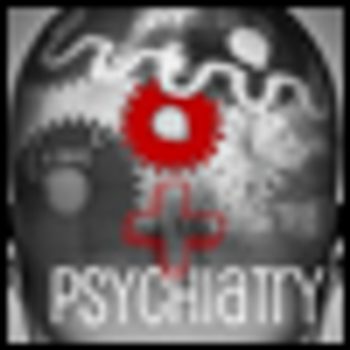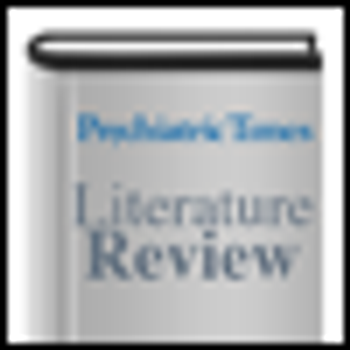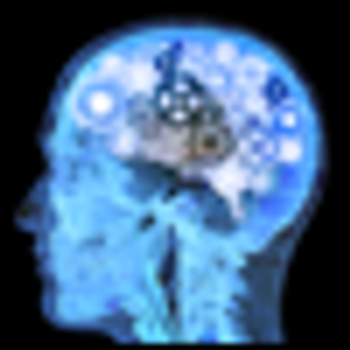
Medication side effects of weight gain and increased appetite, together with non-adherence often found in persons with schizophrenia, bipolar disorder, and other serious mental illnesses, have challenged clinicians in the past.

Medication side effects of weight gain and increased appetite, together with non-adherence often found in persons with schizophrenia, bipolar disorder, and other serious mental illnesses, have challenged clinicians in the past.

While the diagnostic categories of DSM-III and DSM-IV (and soon DSM-5) have provided the basis for much useful research, little has been written about how much of DSM-and how much “evidence-based medicine”-is built on a foundation of fantasy.

Outpatient psychiatry is a critical experience in becoming an independent psychiatrist.

Historically, there has been conflict between psychiatry and religion.

The humanities are a variety of academic disciplines that focus on the human condition with analytic and sometimes speculative methods. This is in contrast to the empirical methods of the natural sciences.

Schizophrenia has long been considered a neurodevelopmental disorder in which onset of diagnostic symptoms in late adolescence or adulthood is the end result of a decades-long interaction between genes and environment that begins in the womb.

A recent symposium brought together some of the nation’s leading experts to talk about promising advances in psychiatry and to address areas where progress has faltered.

This week's news stories: intimate partner violence, gun control and mental illness, eating disorders, and more.

The Clinical Assessment Interview for Negative Symptoms (CAINS) is an effective tool in measuring negative symptoms in schizophrenia, according to a recent study.

It is clear that the prognosis for schizophrenia is much better when patients achieve drug abstinence, including in the domains of depression, quality of life, and community integration.

Emil Kraepelin diagnosed the paranoid, catatonic, and hebephrenic forms of dementia praecox, a disease he created.

Both positive and negative symptoms of schizophrenia combined with those of a mood disorder led to a psychiatric diagnosis; later, a neurological diagnosis of anti–NMDA receptor autoimmune encephalitis was made.

A list of recent articles highlighting the complexity of psychiatric and systemic illness, both in terms of overlapping clinical presentation and in the degrees to which systemic illness and psychiatric illness affect each other.

Migraine, particularly chronic migraine, as well as other chronic headaches, have high rates of comorbidity with mood and anxiety disorders.

This article reviews the recent knowledge about glutamate in different psychiatric conditions based on research published in the past year.

Psychosis can arise from a general medical condition, including endocrine diseases, metabolic diseases, autoimmune diseases, infections, narcolepsy, seizures, space-occupying lesions, strokes, head injury, and more.

The number of medical diseases that can present with psychotic symptoms (ie, delusions, hallucinations) is legion. A thorough differential diagnosis of possible medical and toxic causes of psychosis is necessary to avoid the mistaken attribution of psychosis to a psychiatric disorder.

Pharmacological and nonpharmacological strategies to treat and manage comorbid schizophrenia and addiction concern psychiatrists who are learning strategies to help improve functional outcomes.

There has been substantial interest lately on the early stages of schizophrenia and the effects of untreated psychosis. Clinical trials have focused on medications for first episode, assessments of adverse effects, and “care paths” for the early/prodromal stage of psychosis.

A plethora of studies support the hypothesis that inflammation plays a role in the pathophysiology of major psychiatric disorders.

It would not be overstating matters to say that during his long career, Dr Thomas Szasz has been one of the most controversial figures in the psychiatric profession.

Disparate means of accessing marijuana complicates the evaluation of the quality, purity, and potency of cannabis.

Is the expression “mental illness” merely a metaphor? If so, does that tell us something about the persons we identify as having a mental illness? To clinicians who deal with devastating psychiatric disorders every day-and to those afflicted with these conditions-these questions may seem like a lot of semantic nonsense.

Do not be surprised if you hear more about hybrid models of psychiatric diagnoses included in DSM-5. The categorical and dimensional model approaches are 2 sides of the same coin as you look at the same patient from 2 different angles.

In this review, we discuss the established medications as well as experimental therapeutic options that may emerge as future medications for alcohol intoxication, withdrawal, and/or long-term abstinence maintenance or harm-reduced drinking.